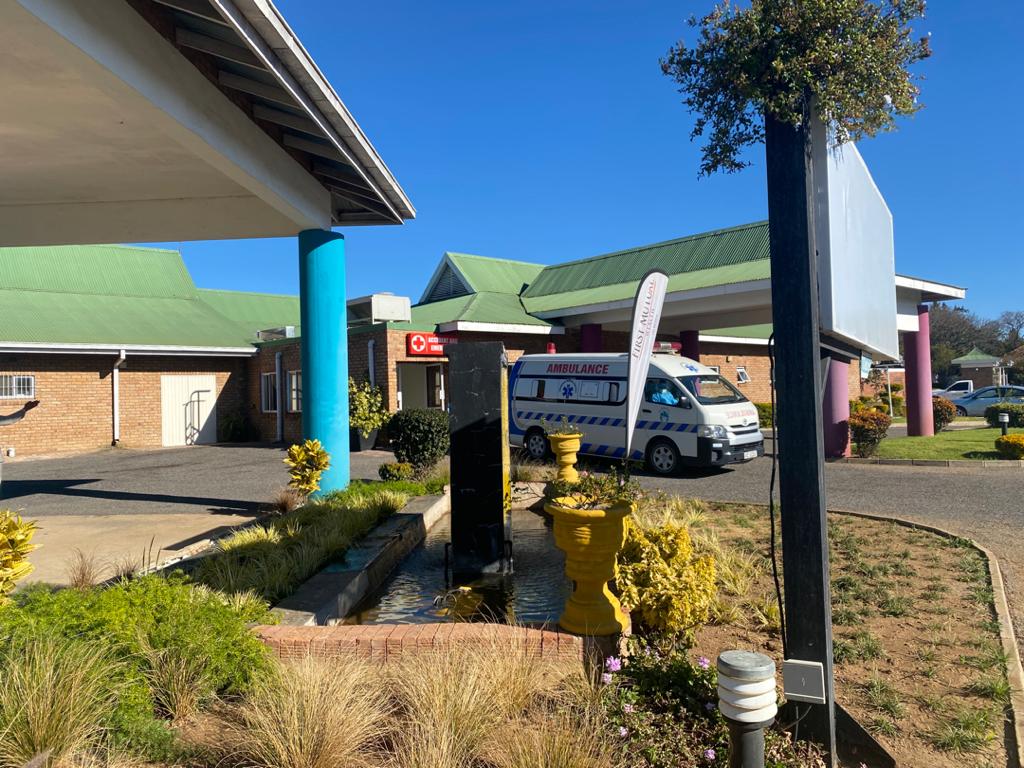Although Ekusileni Medical Centre in Bulawayo has started admitting Covid-19 patients, the hospital is not yet in a position to admit individuals who will require intensive care or high dependency treatment due to lack of appropriate medical accessories.
The hospital admitted its first two patients Tuesday after a closure of more than 15 years.
Addressing members of the press Wednesday, Ekusileni Medical Centre, Acting Chief Executive Officer (CEO), Dr Absalom Dube, said over the past year when the institution was declared a national referral Covid-19 centre, they had been trying to remodel the hospital to suit the required isolation standards.
“We really had to work on those issues and up to today we managed to reach a level where we have satisfied inspectors from the Medical and Dental Practitioners Council of Zimbabwe and the Health Professions Authority who came in these last few weeks and were quite happy with our level although we are going to admit patients with mild and moderate cases,” said the acting CEO.
However, Dr Dube lamented Ekusileni’s Intensive Care Unit (ICU) and High Dependency Unit (HDU) still fell short of the requisite standards.
“Our ICU and HDU have not yet fulfilled the minimum standard that is required,” he said.
In addition, Dr Dube indicated the staff requirements were also not ready to manage ICU and HDU Covid-19 patients.
The other limitation, he cited was Ekusileni’s current bed capacity could not go beyond 20.
“We have 70 beds but the bedside accessories required for us to manage patients at optimum quality are falling short. We can only go up to 30,” he said.
“The other limiting issue is staff who can’t manage beyond 20 patients given that Covid-19 patients can sometimes deteriorate so we need staff to be able to manage them effectively.”
Dr Dube said severe Covid-19 patients who required treatment would have to go the United Bulawayo Hospital (UBH) and Arundel hospital for management “for now.”
“We hope in the next few weeks or so, we will receive some equipment we have purchased through different stakeholders then we will be able to scale up the HDU and ICU.”
Dr Dube highlighted they had 12 doctors and only 24 nurses which was not enough.
“We also have specialists who come in through the National University of Science and Technology whose lecturers vowed to come and support us. These consist of physicians, anaesthetics and in some case surgeons will also come in,” he said.
“The 24 nurses we have is a limitation but we have been promised by Treasury and the Health Services Board that they will recruit more. Now that we have patients, I’m sure they will improve our staff establishment so we can cater for a maximum of 200 (patients).”
Minister of State for Bulawayo Provincial Affairs and Devolution, Judith Ncube expressed gratitude to various donors who assisted with resource mobilisation.
“Through various donations, we have reached a point to start admitting patients because health inspectors came and were impressed by the progress that we have done as Bulawayo,” she said.
“The necessary infrastructural works were done and because of that, inspectors were impressed and recommended that there is no reason why we cannot ease pressure of UBH, Mpilo and decongest work on doctors, and nurses.”
The provincial minister added that her wish was to see Ekusileni create user friendly internal systems so that when Covid-19 patients are admitted, they are optimistic of recovery.
“Now we have two patients, we start with small steps then will graduate to admit more numbers. But the number of patients must match the available manpower to take care of them. We don’t want to burn our healthcare workers, that’s why we will be admitting few numbers,” Ncube said.
“This is why we cannot exceed 20 beds but if we have enough health care workers we can go up to 200 patients.”
Meanwhile, Ekusileni, has since April been used as Covid-19 vaccination centre and Dr Dube highlighted that the institution vaccinates between 400 to 600 people a day.
“Since the country has received more vaccines in the last weeks, we also scaled up our level of vaccination. The vaccination will continue to work alongside the work we do inside.”

